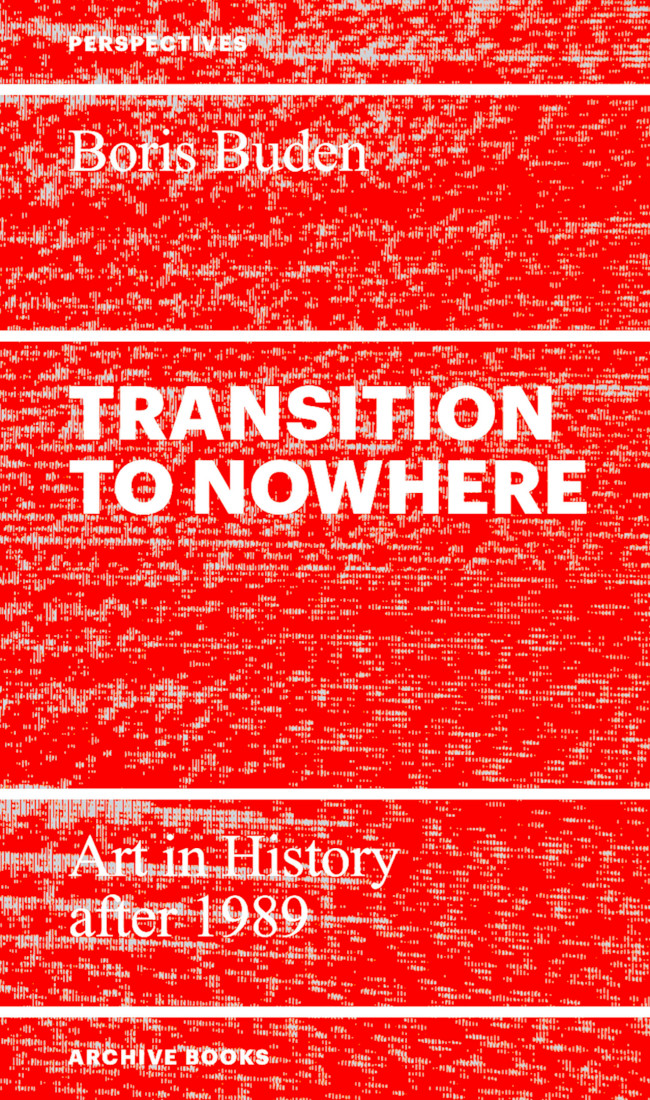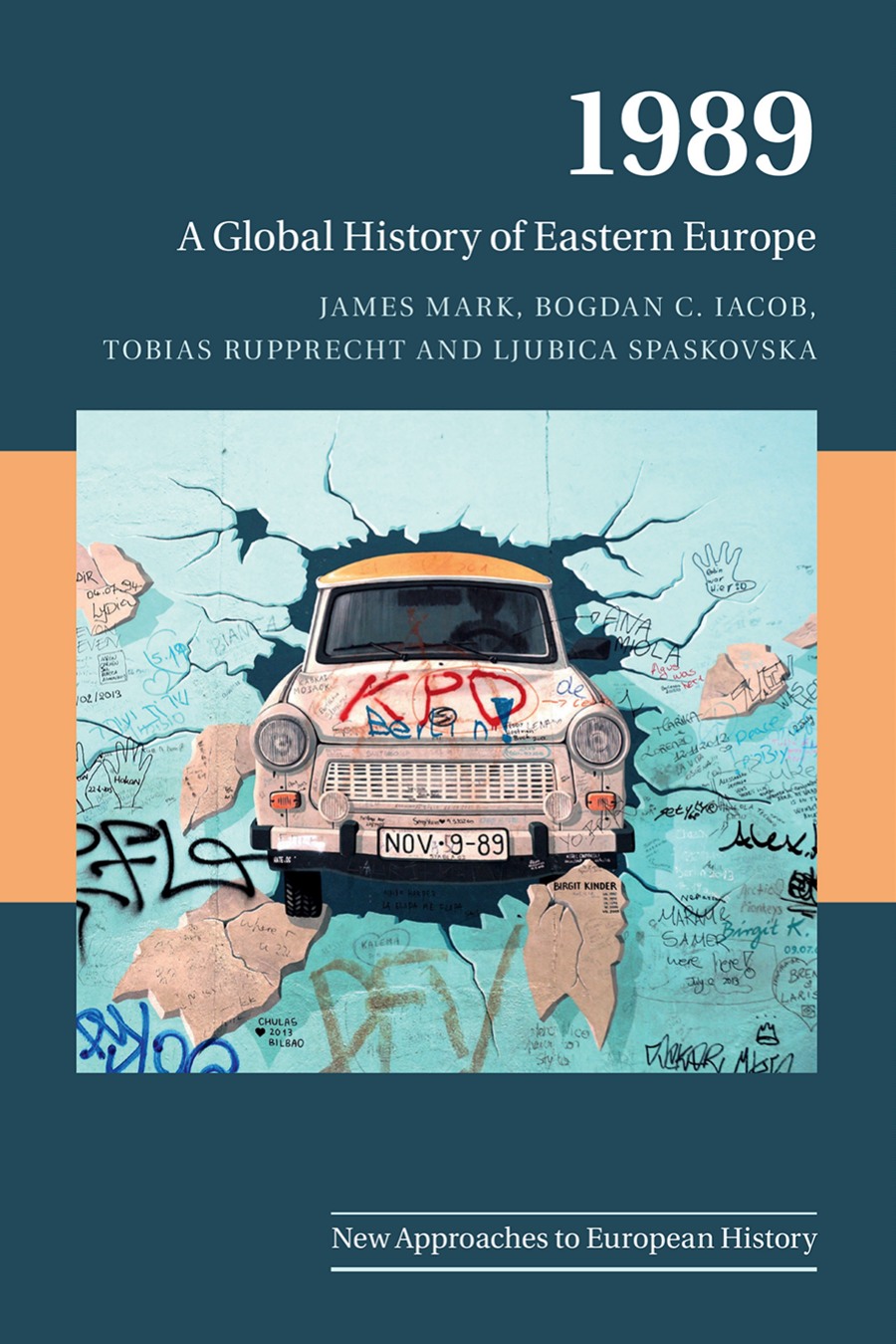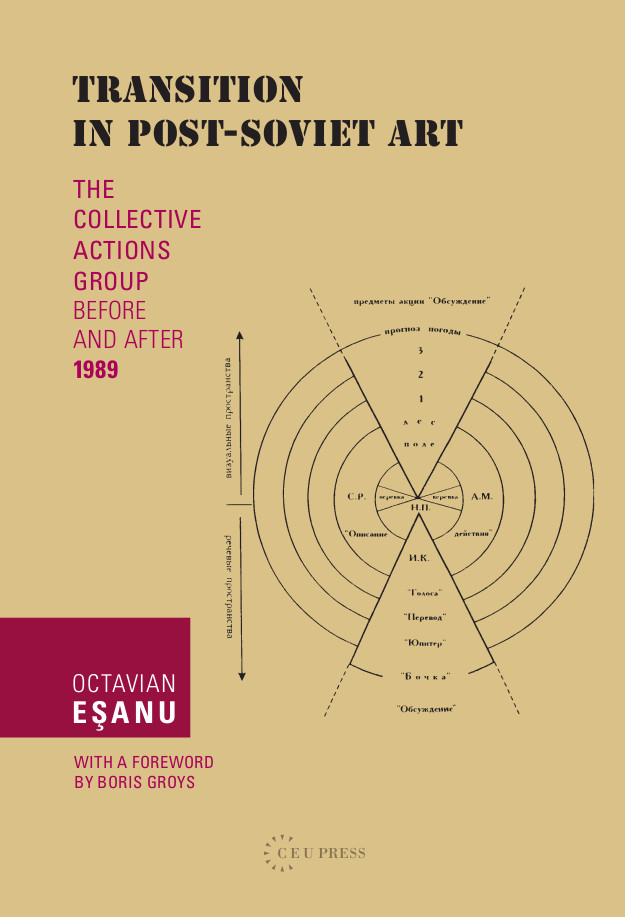Boris Buden: Transition to Nowhere: Art in History After 1989 (2020)
Filed under book | Tags: · art history, civil society, history, identity, language, nationalism, post-communism, transition

“Today, after Post-Communism has ended in chaos and confusion, we are entitled to ask: was it a condition, or a transition; a rise or a decline; progression, regression or simply a time-lag? Has it ever shaped its own form of social being, a unique mode of economic production, a politics of its own, a culture? Or was it just another interregnum of history, full of morbid symptoms we cannot get rid of?
Most of the essays in this book search for answers to questions in works of art. Not because art possesses a superior knowledge on history, but because the knowledge on history we posses has failed in providing those answers. This is a new experience made possible by both art and history, which, in simultaneously facing their end, have come closer to one another than ever before. It is an experience we might possibly learn from.”
Compiled by Boris Buden and Naomi Hennig
Edited by Paolo Caffoni
Publisher Archive Books, Berlin, 2020
Perspectives series
Open access
ISBN 3943620832, 9783943620832
404 pages
HT pere
PDF (31 MB)
Comments (6)James Mark, Bogdan C. Iacob, Tobias Rupprecht, Ljubica Spaskovska: 1989: A Global History of Eastern Europe (2019)
Filed under book | Tags: · 1989, authoritarianism, capitalism, central europe, communism, democracy, eastern europe, europe, european union, globalisation, history, human rights, illiberalism, internationalism, liberalism, market, migration, nationalism, neoliberalism, politics, post-communism, refugees, socialism, southeastern europe, soviet union, transition

“The collapse of the Berlin Wall has come to represent the entry of an isolated region onto the global stage. On the contrary, this study argues that communist states had in fact long been shapers of an interconnecting world, with ‘1989’ instead marking a choice by local elites about the form that globalisation should take. Published to coincide with the thirtieth anniversary of the 1989 revolutions, this work draws on material from local archives to international institutions to explore the place of Eastern Europe in the emergence, since the 1970s, of a new world order that combined neoliberal economics and liberal democracy with increasingly bordered civilisational, racial and religious identities. An original and wide-ranging history, it explores the importance of the region’s links to the West, East Asia, Africa, and Latin America in this global transformation, reclaiming the era’s other visions such as socialist democracy or authoritarian modernisation which had been lost in triumphalist histories of market liberalism.”
Publisher Cambridge University Press, Cambridge, UK, 2019
New Approaches to European History series, 59
ISBN 9781108427005, 1108427006
vii+372 pages
Reviews: Árpád von Klimo (H-Diplo, 2020), Tilmann Siebeneichner (German History, 2020), Nick Ostrum (Europe Now, 2020),
Interviews with co-author (James Mark): Ondřej Bělíček (A2larm, CZ, 2019), Ondřej Bělíček (Jacobin, 2020), Ronaldas Galinis (LRT.lt, 2020), Rūta Miškinytė (15min.lt, 2020, LT), Zoltán Ginelli (LeftEast, 2020, Part 2, Part 3).
Book summary (Eurozine, 2019).
Project website
Publisher
WorldCat
Octavian Eşanu: Transition in Post-Soviet Art: The Collective Actions Group Before and After 1989 (2013)
Filed under book | Tags: · art history, conceptual art, performance art, post-communism, russia, socialism, soviet union, transition

“The artistic tradition that emerged as a form of cultural resistance in the 1970s changed during the transition from socialism to capitalism. This volume presents the evolution of the Moscow-based conceptual artist group called Collective Actions, proposing it as a case-study for understanding the transformations that took place in Eastern European art after the fall of the Berlin Wall. Eşanu introduces Moscow Conceptualism by performing a close examination of the Collective Actions group’s ten-volume publication Journeys Outside the City and of the Dictionary of Moscow Conceptualism. He analyzes above all the evolution of Collective Actions through ten consecutive phases, discussing changes that occur in each new volume of the Journeys. Compares the part of the Journeys produced in the Soviet period with those volumes assembled after the dissolution of the USSR. The concept of “transition” and the activities of Soros Centers for Contemporary Art are also analyzed.”
Publisher Central European University Press, Budapest, 2013
ISBN 9786155225116
xvii+357 pages
Review: Amy Bryzgel (Slavic Review, 2013).
PDF (7 MB)
Comment (0)
